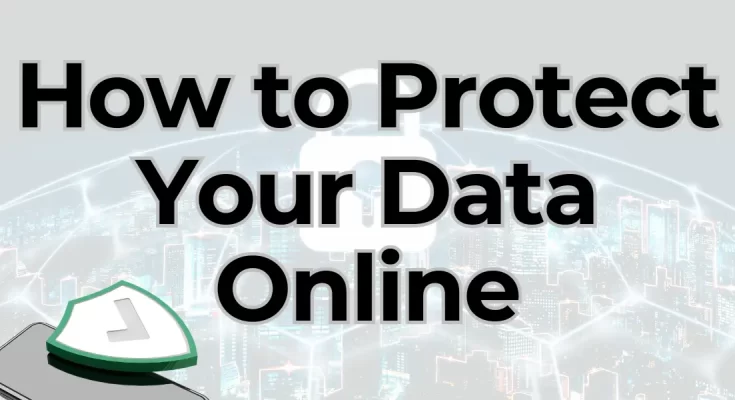In the current digital era, keeping your online data safe has become essential to preserving your online identity. Protecting your personal and professional data requires proactive steps given the increase in cyber threats and data breaches. With a focus on cybersecurity best practices and important advice on data protection, this article will provide you all you need to safeguard your online privacy.
Understanding Cybersecurity
Before delving into the advice, it’s critical to comprehend what cybersecurity comprises. Cybersecurity pertains to the methods, tools, and procedures created to guard against unauthorized access, use, disclosure, disruption, alteration, or destruction of digital data and systems. It’s an ongoing process that calls for ongoing attention to detail and flexibility in response to changing threats.
- Tip 1: Use Strong Passwords
The first line of protection against unauthorized access to your digital accounts is a strong password. For every account, construct a different password using a mix of capital and lowercase letters, numbers, and special characters. Don’t use information that can be guessed, such as your name, birth date, or everyday words. To create and save complicated passwords, think about utilizing a password manager.
- Tip 2: Enable Two-Factor Authentication
By requiring a second form of verification in addition to your password—such as a code texted to your phone or a biometric scan—two-factor authentication (2FA) strengthens the security of your accounts. This increases the difficulty significantly for hackers, even with your password, to access your accounts.
- Tip 3: Keep Your Software and Operating System Up-to-Date
You can make sure you have the newest security fixes and features by routinely updating your operating system and applications. This lessens the possibility of hacker exploitation and aids in defence against known vulnerabilities. Aim for automatic device updates and make manual update checks regularly.
- Tip 4: Use Antivirus Software
Malware, such as Trojan horses, viruses, and other harmful software, is found and eliminated by antivirus software. Install reliable antivirus software and keep it up to date with the most recent definitions of viruses on your devices.
Tip 5: Be Cautious with Public Wi-Fi
Because public Wi-Fi networks are frequently unprotected, hackers can target them. Steer clear of sensitive activities like online shopping and banking when utilizing public Wi-Fi. Use a Virtual Private Network (VPN) to encrypt your internet connection if you must use public Wi-Fi.
- Tip 6: Monitor Your Credit Report
Keep a close eye on your credit report to spot any unusual behaviour. Every year, you are entitled to a free credit report from each of the three major credit reporting companies: Equifax, TransUnion, and Experian. Examine your reports thoroughly, and notify the appropriate agencies of any mistakes or questionable conduct.
- Tip 7: Use a Firewall
By putting up a wall between your computer and the internet, a firewall prevents unwanted access to your data. Turn on your device’s firewall and set it up to prevent both inbound and outbound connections.
- Tip 8: Back Up Your Data
Make regular backups of your critical data to an external device, a cloud storage platform, or both. This guarantees the security of your data if your device is lost or stolen.
- Tip 9: Be Aware of Phishing Scams
Phishing schemes involve hackers trying to fool you into divulging private information, such as financial or password details. When someone phones or emails you and asks for personal information, proceed with caution. Never give private information to unidentified sources.
- Tip 10: Educate Yourself
Since the world of cybersecurity is always changing, it’s critical to stay up to date on the newest threats and recommended practices. Participate in webinars, workshops, or online courses to expand your understanding of cybersecurity and remain current with emerging trends.
Conclusion
Having the appropriate tools, best practices, and knowledge are all necessary for protecting your data online. You may keep your digital security and drastically lower the chance of data leaks by heeding the advice in this cybersecurity article. To make sure your data is protected online, always be on the lookout for new dangers and adjust your strategy accordingly.
Additional Resources
For more information on cybersecurity and data protection, consider the following resources:
- National Cyber Security Alliance (NCSA): A nonprofit organization whose mission is to advance education and awareness about cybersecurity.
- Federal Trade Commission (FTC): The FTC offers advice on data security and protection, including pointers on safeguarding your personal data.
- Cybersecurity and Infrastructure Security Agency (CISA): A government agency responsible for protecting the nation’s critical infrastructure from cyber threats.
Final Thoughts
A vital component of preserving your digital identity is cybersecurity. You can safeguard your digital security and protect your data online by heeding these recommendations and keeping up with emerging dangers and best practices. Always put your digital security first and take preventative action to protect your personal and business data.



